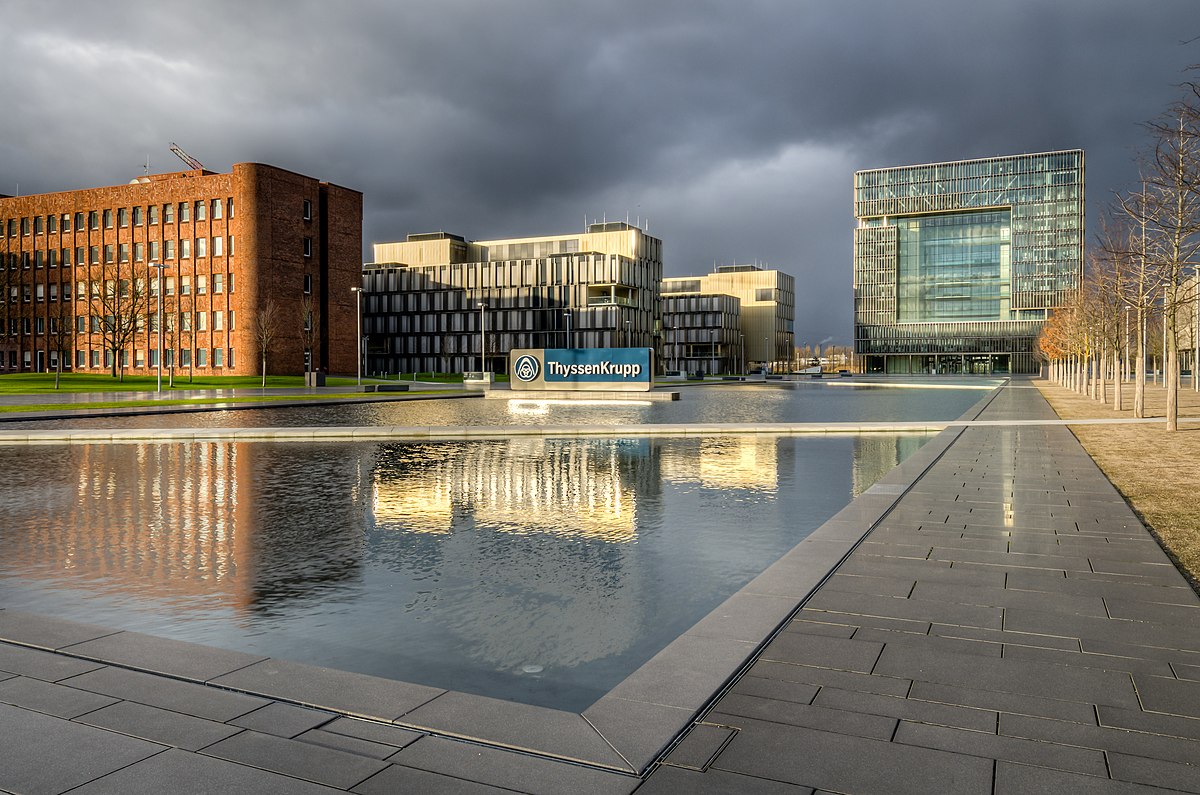
Present in Brazil for a long time, having automotive components maker Metalúrgica Campo Limpo (state of São Paulo) as a landmark of its operations, the German industrial conglomerate Thyssenkrupp has new fronts to grow in the country and in South America. In March, it will be bringing to Brazil the Thyssenkrupp Uhde division, which will focus on industrial projects in the area of green chemistry, ammonia and hydrogen, and on environmental facilities at steel production plants.
The segment is a big bet of the group in the world, and in Brazil as a consequence. Here, there are advanced conversations with several companies that have a project to install a green hydrogen or ammonia production unit, either for the domestic market or for export.
“We dominate, worldwide, with 50% to 60% of the installed base of electrolysers focused on chlorine-soda, the green hydrogen technology, and we already have several projects of these products announced and in progress – one with Shell, which is located in Rotterdam, another in Saudi Arabia (Neon project), and also in the U.S. and Canada,” Paulo Alvarenga, head of Thyssenkrupp in South America, told Valor.
Uhde, a business unit controlled by Thissenkrupp Industrial Solutions, will have an engineering office in Belo Horizonte (state of Minas Gerais) and will begin to work with at least 50 people.
Uhde will absorb the steel and chemical activities, focused on various projects. In the steel industry, it will supply industrial facilities such as coke ovens, gas desulfurization units and treatment units to the gas generated in the process, for projects aimed at decarbonization of steel manufacturers.
In the chemical area, the focus is on plants producing fertilizers, such as green ammonia, basic chemicals, polymers and complete value chains for green hydrogen.
The executive adds that the country’s renewable energy capacity would be around 200 gigawatts (GW), with the production of green hydrogen, which requires clean energy (solar, wind) in the hydrolysis process. Today, the total energy mix installed in the country is 170 GW.
The Solutions mining unit was sold worldwide to the Danish company FL Smidth and is awaiting approval from antitrust bodies. Its equipment division for the cement industry continues to be managed by Polysius do Brasil.
The group operates 15 industrial units in Brazil. It employs 4,200 people and had revenues of R$4.8 billion in the 2020/2021 fiscal year, an increase of more than 50% compared to the previous year, which was affected by the Covid-19 pandemic, mainly in the automotive components and agricultural equipment division.
According to Mr. Alvarenga, there was a strong recovery in this segment — which serves from light to heavy vehicles, with the most different types of components. “Out of every ten cars, nine have a Thyssen component,” he says, adding that there was a 40% increase. “We are back to the pre-pandemic level.”
The main manufacturing unit of this division is Metalúrgica Campo Limpo, which is next to São Paulo (in the city of Campo Limpo Paulista). It is one of the largest crankshaft manufacturers in the world. There are other units spread across São Paulo, the so-called ABC region around the capital, the city of Taubaté (also in the state of São Paulo), Poços de Caldas and Ibirité (state of Minas Gerais) and São José dos Pinhais (state of Paraná).
According to Mr. Alvarenga, revenue from business in the region, which encompasses Argentina, Chile and Peru, was divided equally for each of the three divisions: automotive, naval defense plus trading of steel products and industrial plant engineering.
The latter covers equipment and services for mining, cement and chemicals, in addition to service centers in Santa Luzia (state of Minas Gerais), Parauapebas (state of Pará), Chile (two) and Peru (two) and offices in Belo Horizonte, in São Paulo and in Chile and Peru.
The third basis — Naval Defense and the Steel Trading business — gained expression from 2021. Imports of steel products grew a lot last year with the heated demand in the Brazilian market.
The naval area emerged with the victory of a Navy tender for the construction of four frigates. For the bidding, the Águas Azuis consortium was formed by Thyssen, Embraer and Atech. This is a $2 billion contract, which provides for the delivery of the vessels ordered by 2028.
The construction of the first frigate is expected to start this year, after the replica is completed. Delivery to the Navy is scheduled for 2025. The others, one every year. The consortium acquired a shipyard in Itajaí (state of Santa Catarina), which was adapted to assemble the frigates. “We are going to transfer technology. The first will already have 30% of national components; the others, 40%.” The business vision is for the operation in Brazil to be a cluster for export to South American countries, says Mr. Alvarenga.
This deal replaced the loss of two others: the steel industry (formerly Thyssekrupp CSA), sold a few years ago to Ternium, and the elevator division, sold globally to private equity funds in early 2020. “In the shipyard, we will have 800 direct jobs, in addition to the 1,200 positions from suppliers and 1,000 indirect jobs (from sub-supplier companies).”
Source: Valor International
